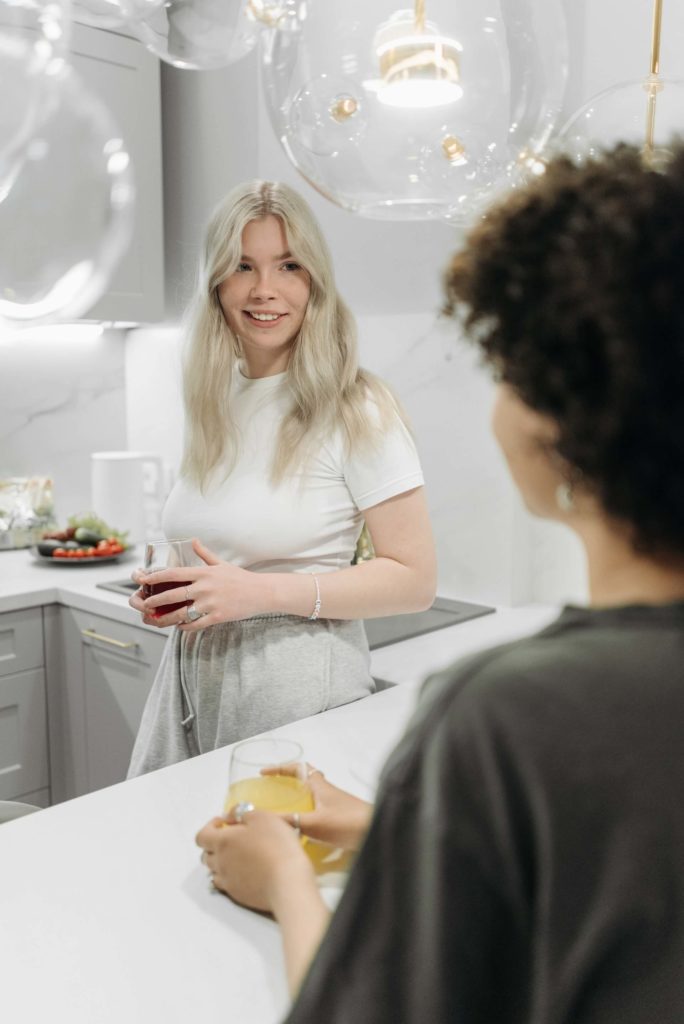
6 Ways to Escape the Pleasure Paradox
Too Busy for Pleasure?
Don’t worry, feeling sensual and getting sh*t done are not mutually exclusive.
“If the world were merely seductive, that would be easy. If it were merely challenging, that would be no problem. But I arise in the morning torn between a desire to improve the world and a desire to enjoy the world. This makes it hard to plan the day.”
― E.B. White
The experience of intimacy, emotional or physical, is not only desirable and deeply pleasurable, but essential for most people’s mental and physical health. How many times has the news reported that the unhappy, violent people were also loners? The link here is unmistakable. On the opposite end of this spectrum, happily-partnered couples report that their intimate time together is often the fuel that fires their relationship.
Which leads to a quandary… If that’s REALLY the case, then why do so many couples struggle to devote intimate, pleasurable time together? It’s a common problem I encounter in the couples I see. To illustrate this point, let’s look at one couple, and how they deal with this poverty-of-pleasure in a modern partnership.
Meet Amy & Maggie

Amy and Maggie are a hard-working couple with two young kids, ages 6 and 8. They’re both high achieving people who pride themselves on “busting their chops” in every area of their lives. Amy and Maggie’s lives, however, like many American couples, are oftentimes experienced as a series of to-do lists: meetings to plan and attend, pick-ups and drop offs for their kids and an assortment of household projects that need to be done. Under these circumstances, time becomes a sacred and limited commodity.
They both know they need to make time for intimacy, but that’s not happening. There just isn’t space in their schedules. They want to feel alive in their relationship and excited about life in general, and they know that the pleasures of intimacy are essential to this formula, but instead, they find themselves just “going through the motions” and crossing off the next “to-do” item on their list.
Does this sound familiar?
When I ask Amy and Maggie what they do to experience intimacy and its pleasures on a daily basis, their response is, “who has time for pleasure, when we both have a laundry list of things that need to be done?” They want to be physically and emotionally loving and enjoy their lives, but they feel the need to suppress the desire for pleasure, in order to perform their tasks as busy parents and professional people.
The answer to their quandary isn’t the simplistic “schedule time for yourselves and each other,” because let’s get real, there are only so many hours in the day.
More is going on here than two busy lives and no time to spare for pleasure.
Sex therapist and author, Tammy Nelson, sees the issue here as the suppression of pleasure, or what she calls “pleasure denial.” Nelson states that the drive for self-control that’s essential to maintain our modern, American lifestyles, plays a central role in the refusal of pleasure. Much like going on a diet to lose weight, pleasure denial is the execution of self-control to reduce the desires and cravings of the human body.
Symptoms of pleasure denial are…
- experiencing limited sexual desire
- the delaying of pleasure and
- emotionally distancing yourself from your partner.*
In my practice, I see clients who are often using pleasure denial as a way to increase productivity in their work and parenting lives.
The narrative in this model is “I’ll enjoy myself when I get x, y and z accomplished.”
The problem is that with performance-based people – which so many of us are – the cost of high achievement is that once x, y and z are accomplished, the list magically regenerates like a Harry Potter object and a set of a, b and c’s appear. In these cases, pleasure denial is costing people, individuals and couples, romance and the enjoyment of life. A typical conversation with many of my clients goes like this:
Client: “My job, which I love, is crazy-busy and intense. I get home and I’m fried and I want to cook a healthy meal for my kids, because I can’t stand to feed them a frozen food extravaganza every night. My partner is the same way and we’re all stuck.”
Me: “When I’m stuck, I usually look for a Spiritual sign of some sort.”
Client: “Well, if there was a sign, I’d be too busy to notice it.”

How can people increase the pleasure in their lives, when time is limited, without affecting their job and parenting performance?
In my work with Maggie and Amy, I addressed their pleasure denial individually at first, as change often starts there, in our bodies and minds and daily habits. Through a series of questions, they each identified their own relationship to experiencing pleasure.
We then created a “pleasure roadmap” for them as individuals and as a couple to build and flex their “pleasure muscles” in a way that didn’t detract from their to-do list, but enhanced it.
The result, increased delight in their day-to-day activities and a reported increase in passion for one another!
Here are some suggestions that are inexpensive and time-saving, aimed at enhancing your pleasure and awakening your senses. These “pleasure practices” are designed to awaken the pleasure receptors in your body and help you emerge from a state of “pleasure denial.”
- Buy fresh flowers for your home when at the grocery store. According to researchers at Rutgers University, it’s true: “flowers are a natural and healthful moderator of moods with an immediate impact on happiness.” **
- Take time applying a scented lotion you enjoy to your body and really feel the receptors in your skin responding to the soothing touch and enjoy the fragrance.
- If you have a baby, smell their head. Yep, that’s right, take a huge whiff. Research suggests that the head is the most fragrant portion of their body. And odors are highly stimulating and can act like medicine.*** (I continued this practice well into my daughter’s childhood as a grounding practice to remind me why I’m here on the planet and what really matters to me. As a teen, I’d have to be crafty to sneak a sniff, but it’s still the best smell ever!)
- When walking (it could be while running an errand on your to-do-list), run your hands through some shrubbery, smell the air, or feel the cool, smoothness of a granite sign.
- Look deeply into the eyes of your loved ones. It’s been said that the “eyes are the mirrors of the soul” as well as eye-gazing being a practice shown to increase trust and connection.
- Speaking of the eyes, another practice I use is called the “lens of love.” You begin by rubbing your hands together briskly; warming and energizing them. Place them gently over your closed eyes. From here, feel the energy of your heart center (think of a person or pet you love deeply) running from your chest, down your arms and into your hands. You’re giving your perception an energy bath of love. You can take your hands away from your eyes and practice seeing everything through the lens of love.
So try one or all of these suggestions and pop me an email and let me know how they work for you. Connecting with you would be my pleasure!

